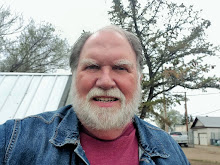 I have been studying for some history courses the last few months.
I have been studying for some history courses the last few months.It has been fascinating discovering the way that events are filtered through the fog of history. We look at something like the civilization of the Minoans on Crete. As far as I can figure out there is almost no decipherable records on these these guys.
 Even the name of this civilization is unknown. Old Arthur Evans -- the man who dug up Knossos and claimed all the credit of discovery -- really seemed to be winging it a lot of the time. He knew that the darn thing was a palace so spent a lot of time and money making everything fit with his imagination. He was a classic scholar, he had read of the Minotaur and sure enough this place had a few bulls in prominent places. So, presto, this just had to be the labyrinth and the culture was named after Minos. (As one web site puts it, at least he wasn't as bad as the other guy).
Even the name of this civilization is unknown. Old Arthur Evans -- the man who dug up Knossos and claimed all the credit of discovery -- really seemed to be winging it a lot of the time. He knew that the darn thing was a palace so spent a lot of time and money making everything fit with his imagination. He was a classic scholar, he had read of the Minotaur and sure enough this place had a few bulls in prominent places. So, presto, this just had to be the labyrinth and the culture was named after Minos. (As one web site puts it, at least he wasn't as bad as the other guy). Another mystery civilization that I had not heard of until recently was the Srivajaya. This is an entire civilization where any kind of description, even at 'Srivajaya Totally Explained'[Link lost], includes the liberal use of words such as postulated, forgotten and suspected. Basically they are basing the whole civilization on a half dozen references to places named Sanfoqi, Yavadesh and Javadeh. My photo shows the coast of Sumatra near the equator crosses the East Coast. Or at least as close as I could figure it when we sailed by in 1975.
Another mystery civilization that I had not heard of until recently was the Srivajaya. This is an entire civilization where any kind of description, even at 'Srivajaya Totally Explained'[Link lost], includes the liberal use of words such as postulated, forgotten and suspected. Basically they are basing the whole civilization on a half dozen references to places named Sanfoqi, Yavadesh and Javadeh. My photo shows the coast of Sumatra near the equator crosses the East Coast. Or at least as close as I could figure it when we sailed by in 1975.So my point is that if we can't be sure that an entire civilization with thousands of people actually existed then how much harder is it to be exact in our knowledge of s single object or person. I have also been studying some art history. There sure seems to be a lot of artists who are named 'Master' whatever after their most famous works or location of where they worked.
I have been more museums and art galleries than most people so how could I have missed out on someone like Jan van Eyck, as seen at Britain's National Gallery, or Rogier van der Weyden as seen at the Prado Museum. Sure I love Rembrandt and Vermeer but there were men painting wonderful painting, just as advanced in technique and style, in the same general area, almost two hundred years earlier. The big difference is that we know a lot more about the personal stories of Vermeer and Rembrandt. Just because an artist's personal life is a big blank though does not mean that he should be forgotten and ignored.
I was joking with a friend a few days ago about alien visitations. Erich von Däniken was famous for writing that alien assistance was necessary to build the Egyptian pyramids. But since they were apparently at least partially made of concrete then alien or divine intervention was hardly required. But I think that I just discovered something that is completely impossible to create unless you have a big microscope and some kind of alien photocopier.
 If you look at this book hidden in New York's Metropolitan Museum and click on the enlargement you will see a near full size image. The pages are only 3 1/2 inches high and I refuse to believe that anyone without superhuman abilities could have actually painted this in the 14th century!
If you look at this book hidden in New York's Metropolitan Museum and click on the enlargement you will see a near full size image. The pages are only 3 1/2 inches high and I refuse to believe that anyone without superhuman abilities could have actually painted this in the 14th century!What do you think? Could this have been done by a Medieval human being?
So in conclusion, there are a lot of academics and a lot of students writing complete drivel based on conjecture and little evidence. If we can't explain the creation of a simple prayer book by anything other than divine or alien intervention, and if a complete civilization can be nearly forgotten, then how can we believe that our perception of the historical truth of anything else is not complete fabrication and conjecture?
